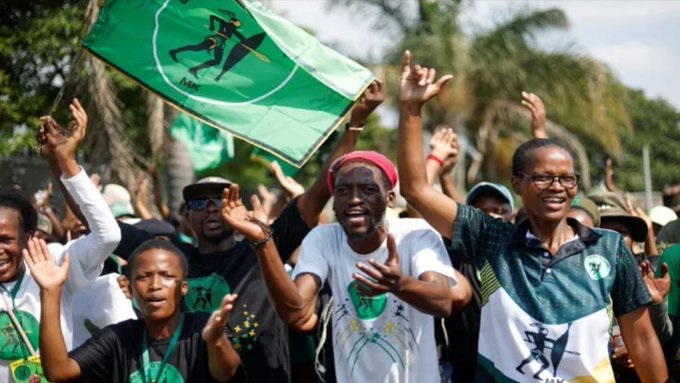Johnathan Paoli
THE Democratic Alliance (DA) has joined the Independent Electoral Commission (IEC) in refuting claims made by the Umkhonto weSizwe (MK) party of vote rigging, and said there was no evidence backing up the allegations.
Both the IEC and DA filed their answering affidavits in the Electoral Court on Wednesday, responding to an application made by the MK party earlier this month, which sought an order declaring the national and provincial election not free and fair, and subsequently invalid.
The DA, IEC, President Cyril Ramaphosa, the Speaker of the National Assembly, and other political parties are some of the respondents named in the application by the MK party.
In its answering affidavit, the commission said it was concerned over the serious and prejudicial allegations made by the MK party which brought its integrity into disrepute.
Chief electoral officer Sy Mamabolo said MK’s application was incompetent and called on the court to dismiss it with costs.
Mamabolo said the party did not comply with section 55 of the Electoral Act, which provided that parties should lodge objections with the commission itself, and should only lodge an appeal in the court once the section has been exhausted.
In addition, he said MK failed to abide by regulations which held that appeals against election results must be made within three days of the declaration and that the party failed to provide reasons for only filing two weeks after.
MK national organiser, Nkosinathi Nhleko, previously claimed that there was evidence of serious electoral irregularities, including an analysis conducted by unnamed experts.
Nhleko said had the elections been conducted in a free and fair manner, the party would in all likelihood have won.
“There is evidence that, because of the deficiencies in the process, the results captured at the voting districts differed from those that were reflected in the leaderboard by the IEC. In some instances, the differences were vast, while in others the differences were minor,” he conceded.
The affidavit was accompanied by a document prepared and analysed by the experts of the applicants and summarised alleged discrepancies in votes.
MK alleged a disparity of 9 336 828 votes, using numbers relating to registered vote count by province and votes cast.
The party alleged that the IEC’s election system and dashboard were compromised, and that system failures could be attributed to 16 potential issues, including malware, cyber attacks, processor overheating, human error, computer memory problems, insufficient system resources and driver issues.
The African Transformation Movement (ATM) similarly approached the court in relation to allegations of misconduct and rigging by the commission.
The party outlined several points, including problems with voters’ roll, malfunctioning voter management devices, alleged mishandling of ballot boxes and the miscapturing of votes.
ATM leader Vuyo Zungula previously said the irregularities and inconsistencies observed during the elections strongly suggested that the commission veered away from its mandate, and has compromised its ability to administer free and fair elections.
“Some voters were not on the voters’ roll for the voting districts they have registered at, but were informed their names appear in the voters’ roll elsewhere in another voting district,” Zungula said.
MK members were on Wednesday picketing in central Pietermaritzburg outside the Magistrates Court in a campaign called “Asivumi” in response to the arrest of the IEC area manager, who is suspected of tampering with ballot papers in the recent elections.
INSIDE POLITICS

